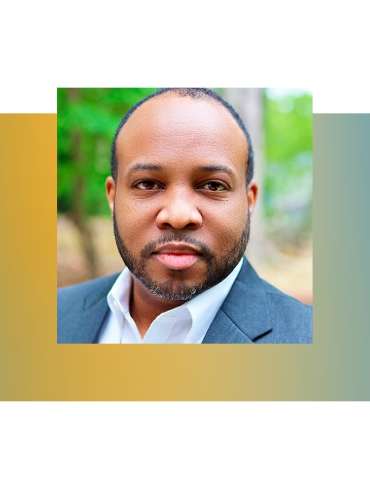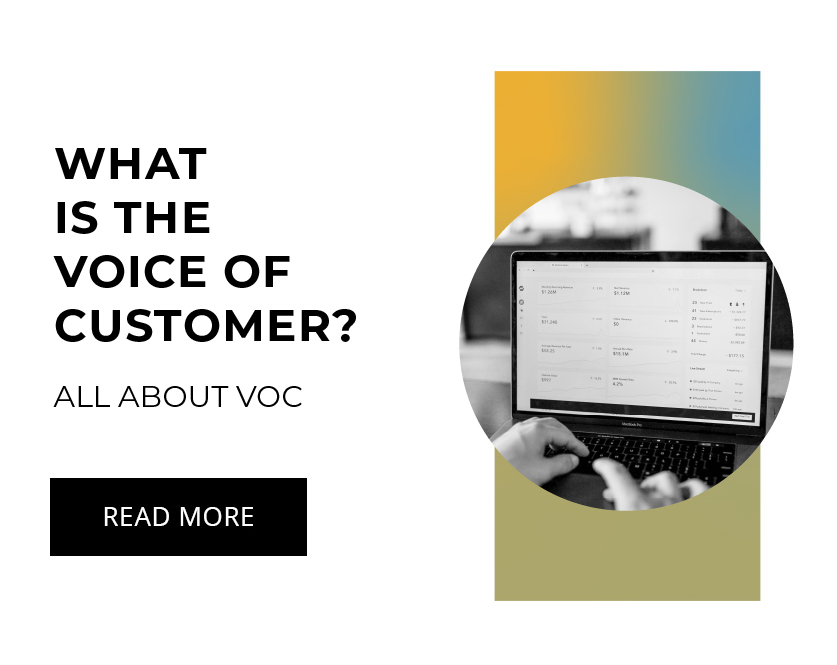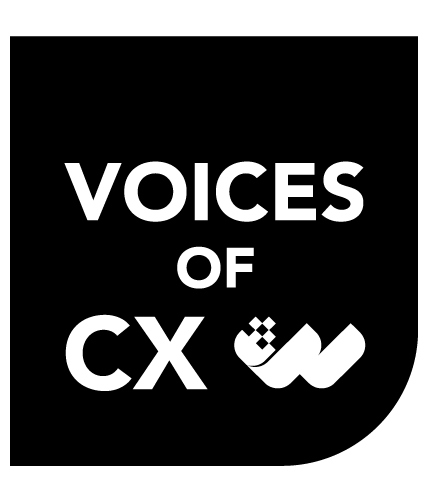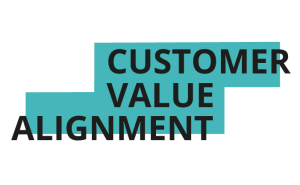About Becky Roemen
Becky Roemen is an experienced Customer Experience transformation strategist with demonstrated success and thought leadership. Her innate passion for the delivery of digital transformation & disruptive business technologies is married with her marketing and business strategy background. She serves as a thought leader in the Customer Experience and Disruptive Technologies space, backed by several industry publications and certifications.
Expertise in both technology and marketing give way to refined capabilities in developing and implementing a transformational customer experience strategy that provides value and drives customer loyalty. She’s a trusted industry voice for guidance on emerging contact center channels and technologies, and has been recognized as a Top 50 Customer Experience Industry Thought Leader by ICMI.
Follow Becky on LinkedIn
Follow Becky on Twitter: @BeckyRoemen
Follow Worthix on LinkedIn
Follow Worthix on Twitter: @worthix
Follow Mary Drumond on LinkedIn
Follow Mary Drumond on Twitter: @drumondmary
Transcript:
Introduction (00:04):
Becky Roemen is an experienced customer experience transformation strategist and thought leader. Her innate passion for the delivery of digital transformation and disruptive business technologies is married with her marketing and business strategy background. She serves as a thought leader in the CX and disruptive technology space, backed by several industry publications and certifications. She is a trusted voice for guidance on emerging contact center channels and technologies. She’s been recognized as top 50 customer experience industry thought leader by ICMI.
Mary Drumond (01:16):
So we’re back for another episode of voices of customer experience podcast. I am joined today by Becky Roemen. What’s up Becky.
Becky Roemen (01:24):
Hey Mary, how’s it going?
MD (01:26):
So we are having mimosas this morning because we’re in the middle of a quarantine and we just figured it would be the right thing to do in these circumstances. So, Becky you’re in the twin cities, right?
BR (01:37):
I am, yup. Minneapolis.
MD (01:39):
And I’m in Atlanta and we’re sharing a mimosa 10 o’clock in the morning for you, 11 o’clock in the morning for me. No shame there. It’s five o’clock somewhere.
BR (01:47):
Exactly. It’s Friday. We’re talking about CX.
MD (01:51):
This recording is long overdue. Honestly, you should have been on here so many seasons ago, but I’m really glad to finally have you, because you’re such an important member of the community that we’re all a part of, which is the customer experience community. And I can’t believe that you and I still haven’t met in person.
BR (02:07):
I know.
MD (02:07):
But at least we’re finally doing this episode. So why don’t we kick off with you telling our listeners a little bit about yourself, about what you do, your job, your passion, why customers are such a strong driving force behind your career?
BR (02:23):
Sure. So I always like to kind of rewind back to the very start, and I was a poor college student working in a contact center. If you can imagine an outbound contact center, of all things. So you talk about the world’s worst agent experience. And I had it all. My eyes were open at the age of 19 to what a contact center does, how agents are treated in a contact center, how they’re managed, what they do. And it just totally changed my life. I decided this is just what I want to do. So through the winding roads of digital marketing and contact center engineering through the years, I have just kind of touched every corner of what we now consider customer experience. And it has been such a fun journey. And that has led me to where I’m at today, which I manage the customer experience solutions and consulting for a firm called Avtex. And we are customer experience obsessed and live and breathe it. Live and breathe strategy, technology, implementation, operational consulting, engagements. And it’s just, it’s what I do. I love it. I’ve been around it for a long, long time. And I think I’ll retire out of this industry as well.
MD (03:41):
Let’s hope so. I mean, I think that it would be pretty amazing, like seeing customer experience like 20 years from now and what it’s become.
BR (03:50):
Yeah. You don’t get a lot of us that, you know, start in a contact center as a teenager and stick with it this long. So I always love talking to other people who are like, yeah, I’ve worked in a contact center as well. You have a different perspective, you just do.
MD (04:10):
Yeah. You know, you see that a lot. You know, for example, a lot of people who worked as servers when they were in college or even, you know, later on in life, they do have a different type of respect. They interact with the industry in a different way when you’ve been there. That’s why a lot of even CEOs that started off pretty low in the ranks and built their way up, they end up having a different perspective as well. Their leadership style is very, very different than people that went straight into some executive position out of business school, right?
BR (04:42):
Yeah, absolutely.
MD (04:43):
So when you lived and breathed the issues and the challenges and the difficulties and the joys of all of the little intricate moving pieces of every single role, especially in a frontline role, like a contact center. I am sure that that gives you a really solid foundation to then become an expert on the subject.
BR (05:04):
Yeah. I always tell people, two jobs completely changed my outlook on life. I’m not even going to say career. On life. And that is that agent job in the contact center and bartending. And interacting with people in those settings, it gives you just a whole different outlook on human empathy, kindness, how to interact and engage with people. There’s no other job like those jobs where you just get this tidal wave of empathy training in, in one setting.
MD (05:38):
So let’s get into that a little bit because you know, we talk about customer experience a lot. We talk about employee experience a lot on this podcast, but contact centers are a really important part of the customer and a giant hunk of the experience. If we take a minute to stop and look at a contact center and what people are dealing with with their employee experience, there’s a unique perspective for people working on those front lines. And that has a lot to do with what you do and what you focus on right now. Isn’t it?
BR (06:14):
Yeah, absolutely. And when we look at, I like to think of customer experience as an ecosystem, and part of that ecosystem is the contact center. And the contact center is really that delivery mechanism of the promises we’re making to our customers. So of course we have some of that proactive engagement that is absolutely a part of the customer experience and those digital touch points that engage them before perhaps they need to get support or need to reach out to us. But the contact center is just that engine, that control hub of customer interactions.
MD (06:50):
There are a unique set of challenges for contact center agents. Just to get us all up to speed with those, for those of us who haven’t, you know, worked at contact centers, since our teen years since college, just give us a little bit, like set the scene for us. So we understand, because from my perspective, the only contact I have with contact centers is when I’m calling in as a customer. And it makes me kind of, I’m going to say myopic when it comes to my analysis of a contact center. Because I’m always looking at things from my perspective and that agent on the other side, I have no idea what their challenges are and I, lots of times get really frustrated. I can only imagine the frustration that goes on on the other end. So help me paint the picture here. Yeah. Well, first of all, we make a lot of assumptions as customers, don’t we? And these assumptions should be documented by the companies that we interact with and the companies that we represent. Because as customers, we have these expectations of you’re going to know me. This is going to be a personalized experience. The agent is equipped to handle my question or handle my concern. And so often that’s not the case. We punish the agent for all of these mechanisms that aren’t in place and things that are so far outside of their threshold of control. The agent can control in the scheme of things, very little. They can control their tone of voice. They can control how they handle the call, how they make that customer feel with their soft skills, but they can’t control a lot of things that are happening behind the scenes: what their agent desktop looks like, the access to information that they have, or don’t have how well the telephony system is working. So many of these components make or break the customer experience and are out of their control. And they’re navigating around all of these things while making sure that us, the customers, are having a great experience and it is like, I don’t even know what the correct metaphor for it would be, like riding a bike that’s on fire, into traffic. Like it is just so difficult to navigate some of these nuances and so many contexts that our agents are expected to do that with very little training, with incredibly rapid onboarding because so many contact centers are trying to constantly backfill, and they’re supposed to know the customer, know the systems, be able to understand the processes and workflows really, really quickly. We expect so much of them and oftentimes don’t give them enough to deliver on those expectations.
MD (09:39):
So here’s a question that I have, and I know that it’s a little bit controversial. So if you have a hard time answering this because of your position as a consultant and everything, I understand. But why is it that contact center is a challenging job? It’s so challenging. I think that everybody that works over the phone, whether it’s a customer service representative or a telemarketer or anything, there are so many challenges that come from that. It’s such a difficult job. Why is it that historically it’s considered a low income job?
BR (10:13):
That’s a good question. I struggle with this question, Mary, because I think, I think the root of this is that for so many years, the contact center and customer support was considered a cost of doing business. It was not an area of the business that was seen as a value center or an area that could deliver a return on investment. It was simply something, we have to keep the lights on. It’s just a cost of doing business. And so with those really unsexy things that are just expenses to a business leader, they’re not going to put the love and care into it that they would into a revenue center or a value center. And so that connection to it being a cost center and just this like table stakes item, it just has to be there so that we can do business. I think really impacted how they were operated, how they were funded, the cultures that were built within them, the list goes on and on. So I really think it was this perception of business leaders that we just had to have a phone number turned on for customers to call us in order to do business. So it was this attitude that created the culture around contact center, kind of being this afterthought and something that just has to be there so that we can sell our product.
MD (12:05):
But if you consider how much lies on the shoulders of these contact center reps, it’s incredible. Especially because post-purchase, they become the number one channel, I would say nowadays, of the company speaking and dialoguing with the customer. So every time a customer needs something from the company post-purchase, it’s directly through the contact center, right? So at that moment, the context center becomes the heart and soul of the organization, when it comes to the customer’s perspective. I mean, the amount of training, the amount of skill, the amount of emotional intelligence that’s required to deal with that properly, I would think that that would be a lot more appreciated. I know that this is controversial. Please nobody murder me right now, but it feels like something that should be pay more.
BR (12:58):
Yeah, you are absolutely correct. I think Mary, the good news is that we’re about to hit this paradigm shift. Perhaps because of Corona virus, but we now more than ever, with these huge volume spikes in our contact centers and just changing working conditions, people working out of their living room with kids in the background and things like that, I think we have finally had the wake up call when it comes to contact center operations that we’ve been needing for a long, long time. The contact center is now how our customers are interacting with our brand, period. Yeah. Right. The past six months, there is no retail storefront. There is no alternative means to get help or other human interaction that they’re getting with the brand. The contact center is it. And companies are going to be feeling that incredibly. They are feeling that right now. And they’re seeing just how much the agent and the frontline workers are impacting the customer, are impacting the customer’s emotional attachment to the brand, the overall lifetime value of that customer, retention, all of these different things can come down to, like, I called into company X during Coronavirus and they totally put me at ease. They changed my week, my month, my life. And this is just such a make or break moment. And those moments are happening because of the frontline agents.
MD (14:23):
I was asked, I’ve actually been asked so many times during this time, which are the companies that are going above and beyond during this time and really coming through for their customers. And my mind always goes to Delta. Always, every time. Yeah. Because my family had a trip planned that we had to cancel. And when we called in, we were treated, I mean, effortless is to say the least, because the woman on the other side was so accommodating and so empathetic. You know, her, her point of view was, you guys are making the right decision, canceling this trip, stay home, stay safe. And this is, you know, she’s basically saying, yes, Delta is losing money, but this is the right decision for your family at this moment. And she put us at ease in a heartbeat. And that really, I mean, I’m already a Delta person, but that really solidified my relationship with them. And it helped show me that I make the right decision every time I choose Delta over another airline. So that was so important. And a woman, you know, sitting in the call center, who’s probably making, you know, I don’t know, one 18th of what the executives make.
BR (15:35):
Right. If that.
MD (15:36):
And she is the person that’s making sure that the loyalty stays strong even through the most challenging moment in the airline industry.
BR (15:46):
And it comes down to reading those emotions, right? As humans, what do we need at a time like this? We need to feel safe. We need to feel comforted. And we need to feel that empathy from the other person on the other side of the phone call or the chat. That empathy and how those calls and contacts are handled, like you said, totally makes or breaks what happens in the next several years, a customer’s entire lifetime. So it’s so crucial and, you know, Delta, I love using Delta as an example as well. Cause we’re both in Delta hubs, so I’m ride or die Delta. And they seem to always get that right, where they’re encouraging and enabling the agents to have empathy for the situation to understand, I’m in a stressful situation. Even before Coronavirus. I’m stranded in the airport. I want to be home. I haven’t slept. You care about me as a person. You care that I can sleep in my own bed tonight. And you’re helping me solve my problem.
MD (16:48):
Diving a little bit deeper into Delta. Delta is not a free of mistakes or cancellations, and you know, has the same problems that all the other airlines have. And I have been subject to all of the above. The difference that I have with Delta is that every time I get on the phone with one of their representatives, they make everything right. And I think that, that is the main difference. And for me, it’s one of the high points of doing business with Delta. So last summer I flew to New York for a weekend with my sisters. And on the way back, my flight was delayed for 12 hours. It was a ridiculous situation.
BR (17:26):
Laguardia?
MD (17:26):
No, I was actually in JFK. But it was ridiculous, like comical. And towards the end of the day, it was so bad when we finally got on the plane. This is a funny story in retrospect, it was not funny at all when it was happening. But when we finally all got on the plane, there was no A/C the A/C wasn’t working. And everyone was hot and the doors were closed and we couldn’t take off because the flight had been so delayed for so long that they couldn’t get a window for us to take off. And we’re sitting there in the plane with no A/C. The captain comes on and says that the reason the A/C wasn’t working was because we had had a problem in the blah, blah, blah, blah, for phalange, whatever, in the plane. And the woman next to me, she loses it. And we’re like waiting our turn. We’re like on the runway waiting to take off. And the woman sitting directly next to me, freaks out. And she’s like, if this plane has a problem, I want to get off. I want to get off. And we’re like, no, no, don’t, don’t say that. And she’s like, I want to get off. And apparently when a passenger says they want to get off, you have to let them off the plane. So we have to go back to the gate to de-board these people who had freaked out, because apparently there was a mechanical problem in the plane. And then the captain had to come back on and say, you know, guys, we have families too. We’re not going to fly a plane that’s got a mechanical issue that would put our lives in jeopardy. But that was not enough. And like chaos, just chaos. And we’re sitting there and people are hot and sweaty. It’s the middle of summer and the A/C isn’t working. And now we’re waiting to open the door of the plane because we had to go back to the finger. So at this point, somebody in the plane starts pulling off their clothes. And then the staff starts threatening to call air marshals and have people arrested.
BR (19:33):
Those poor flight attendants.
MD (19:33):
Like this at this moment, it’s like the worst possible situation that you can imagine. It was so bad. It was so bad. I got home at five o’clock in the morning. I was supposed to be home at two o’clock in the afternoon. And it was insanity, insanity. And I was so angry, so angry at the situation, you know? And I was angry because I felt to a certain sense, maybe betrayed by Delta even, you know, cause you know, how could Delta do this to me? When I got through the woman on the other side, I mean, she was like, Oh my God, that is terrible. That is absolutely horrible. And you know, I don’t even think that she did that much for me. You know, she gave me a couple air miles. It wasn’t that, it was the way she reacted.
BR (20:20):
She had empathy for the situation.
MD (20:21):
It was the empathy. And I think that that empathy is maybe one of Delta’s main tools to executing wonderful customer service. So what’s it like, like in the background, Becky, what’s it like in the call centers when agents are getting trained for empathy, how does that work?
BR (20:41):
Sure. So let’s take that hot lady. The lady that was hot on the airplane. Let’s just think about adults having meltdowns. And then you remove that face to face contact. And everybody has a little bit more gull when you’re not looking at other human in their eyes. Right? You all of a sudden just become a little bit bolder, a little bit grumpier and you just decided to take it out on this other person that happened to get your call. So when we think about these people that are in really distressed situations. Whether or not they’re handling their behavior appropriately is beyond our control. And think about handling the lady, having a meltdown on an airplane, think about handling somebody like that once an hour or several times a day. And what that does to perhaps your mental health, your ability to empathize with them, your ability to handle the call without having preconceived notions about who this person is or why their behavior is like this. It is really hard. Especially in some industries where you’re taking call after call after call of frustrated customers, or customers on edge, customers with really high tension. And that is really hard to do. It’s a really, really hard job to be at the front lines, handling frustrating calls every hour, sometimes every minute. So we have to think about that. You’re removing this sense of human to human interaction, because people tend to behave a little bit better when it’s face to face. And then you’re also throwing these calls at them multiple, multiple, multiple times a day. And there’s just so much being thrown at them. So how do we prepare them for that empathy? How do we prepare them to deescalate that behavior to handle being talked to perhaps in a not very respectful manner. All of these things are just Gamechangers for the agent to be prepared for that, to understand how to handle conflict appropriately. We gloss over these things as contact center trainers and onboarders and managers, because we want to get to the nuts and bolts of what a contact center does. We have to take a call, take a chat, handle those contacts and get the customer to move along.
MD (23:11):
With that one call resolution bit as well, right. That that’s a thing, isn’t it?
BR (23:16):
Yeah. First call resolution. Absolutely. First contact now for omni-channel consideration, but yeah, absolutely. How do we handle the issue as quickly and as efficiently as possible on the first time and get them to move along, which is, of course when you boil it all down, that’s what a contact center does. But again, there’s all these nuances. Humans are tricky, tricky beings. We have emotions. We have all of these nuances in our tone of voice, right? I might completely innocent in how I’m trying to say something, but it comes across a little nasty and then the agent could respond to that, or vice versa. And so there’s just all of these nuances that we have to be aware of. And we have to be talking about in the contact center, because that employee experience, that agent experience and how we’re equipping them for these scenarios, impacts how we deliver that customer experience.
MD (24:38):
I think it’s really easy to focus on all the wrong things that companies can do for their agents, but let’s focus on best practices. On companies that are doing it right. What are some of the ways that you have seen companies come through for their agents that truly makes a difference for these human beings who are dealing with so much stress with so much pressure from a psychological or mental health perspective. What are some of the ways that you can make your agents feel appreciated, respected, loved, and that they’re truly valued to an organization?
BR (25:17):
I think it comes down to a couple of key areas. So a lot of times people will immediately go to the technology and say that the best way we can enable our agents is through the technology. That certainly is a component of it. We can get to that in a minute, but I always go for the policies first. How are the policies that we’re putting in place impacting the agent’s ability to deliver a good customer experience? And we create these really rigid policies and they have to jump through the eighth layer of hell to resolve a customer issue. And then we wonder why the CSAT is low or a customer is frustrated with the handle time. So we have to have policies in place that enable the agent to have certain liberties and have transparency into information. If we are blockading the agent from solving issues, we’re creating our own problems. A lot of the best practices revolve around making it as easy and seamless as possible for agents to help the customer, whether that’s access to information, access to the customer journey and that journey context, all of these different areas of people, process, technology, culture, all has to boil down to, are we enabling the agent to deliver the best customer experience possible? And so when we kind of dive into these things, culture, policy, technology, I always come back to, does my agent feel valuable, valued and enabled. Do they understand the value they’re bringing to the organization and just how important they are to us? Are we telling them how important they are to us? And are we enabling them through technology and policy and process to be able to deliver on that value?
MD (27:08):
Is it a little bit of a vicious cycle, or was it, it might’ve changed in the more recent years, but where, you know, call center positions pay so little that people that end up working there don’t really value that job. And then they don’t put their heart into it. And they don’t really perform. Therefore management comes up with stricter and stricter rules to ensure that work gets done and then less people want to work there. And then it just becomes worse and worse and like a cycle of bad practices all around. Is that a reality?
BR (27:42):
Absolutely. It is so often a self fulfilling prophecy where it’s like, what came first? The chicken or the egg. You’re not wrong by any means. But one of the things I always try to go back to is just like leadership 101, right? Without the culture in place and employees having trust in leadership and trust that they’re being given growth opportunities and a positive work environment and they have supportive management and they’re being given meaningful work. If these things aren’t communicated to them and they’re not feeling that in their day to day, there is not a management policy in the world that’s going to retain them. We have all of these statistics around productivity and workplace happiness. So there’s just this massive disconnect in the contact center where we are saying in all these other areas of our organization, we understand that flexibility and wellness all impact our ability to be happy, healthy, and productive employees. And yet we’re not letting that trickle into our contact center so often.
MD (28:42):
Do you think that there has been a change or a shift with the millennial workforce where they expect more and they demand more and organizations have found that if they want to retain personnel, they have to up their game in regards to their employee experience?
BR (29:01):
Okay. As a millennial, I’m probably considered an elder millennial, but as a millennial, I have to say as somebody that has kind of grown up in this world as a millennial, in this context center world, I should say in the customer experience industry, I have met so many employees and people that are millennials that value the things that are intangible to companies. They want to do meaningful work. They want to make an impact, things like that. And you can’t put a dollar on that. I think it’s a little bit shame on them for not harnessing that a little bit better. There are so many ways we can build programming around having employees feel valued, having their voice feel heard, making an impact. And so often I’ve seen at contact centers that when an agent feels they have a voice and that they’re making an impact, a positive impact, their tenure increases, our ability to retain them increases, they’re happier, they’re more productive on the phones. It just has so many downstream impacts. So I think that we make all these assumptions about millennials, but if we actually took the time to understand what makes them tick and what’s important to them, we can build almost cost-free programs around that and see our retention spike.
MD (30:24):
I couldn’t agree more, you know, as an older millennial, like you, I’ve had this argument multiple times, where we’re not crazy. We just don’t believe that we have to be working in the Gulag in order to feel like we’ve accomplished something. We honestly feel like there is a value to the work that we do. And if you want us to provide you with this labor, then you’re going to treat us like regular human beings. And I don’t really think that this is mysterious. You know, of course I’m not the one that’s crunching the numbers, et cetera, but I feel like it’s pretty obvious. You don’t really have to do that much thinking to understand that if you want to retain people, then you have to provide them with a good experience. But you see, this is where I’m a little bit concerned and I’m going to share my concern with you. And I wonder if you’ve thought of this as well. For the past couple of years we’ve been working in a market, that’s got basically full employment, right? Where companies are actually fighting for good people because everyone has a job. And this scenario has changed drastically from one moment to the next. All of a sudden we have millions of unemployment claims and companies, they’re going to have challenges that we haven’t seen in a really long time in the upcoming years. Cause I think it’s going to take a while to recover. So I feel like the employment market may change. And with that change, what you get is more people looking for jobs than you have jobs available. Have you considered the possibility that some companies may start downgrading their employee experience because of this?
BR (32:09):
It’s certainly possible. But I think that if business leaders are taking a step back and saying, I want to make sure that this business is here in a decade, in two decades, we want to sustain this business and make sure that we’re sustaining our customer base. They have to look at the extreme downstream implications of pulling back on things like employee experience. Of course, if it’s a make or break financial decision, things happen. But there are a lot of ways that we can keep our employee experience really positive that have incredibly low cost associated to it. And again, when we look at the employee experience, culture, trust and leadership, having growth opportunities, a positive and healthy work environment, understanding the value that they’re bringing back to the organization, which comes into play with transparency of state of affairs. All of these things have very minimal costs to the organization, but have huge impacts and implications on the employee experience. So am I concerned that I’m going to see a decline in EX? Yes, but I think we can successfully challenge that thinking with statistics and all of the information we have about how the employee experience impacts the customer experience and without customer experience, we’re not differentiating and we could lose market share, we could lose customers. And that is a huge problem.
MD (33:38):
Because at the same time, now that I’m thinking about it a little bit more, we’re also seeing that spotlight shining on frontline employees and the importance of call centers at this time. So that might help balance it out.
BR (33:50):
And, you know, companies often don’t give employees the benefit of the doubt. So think about how many companies have totally dragged their feet on remote work and allowing the employees to have the flexibility to work wherever they want to, wherever it makes sense. And then now they’re rolling out an entire remote workforce in a matter of days, and the employees are adopting to the working situation and to the policies. And these are companies that thought this will never happen, it will take us years. I mean, humans are so adaptable if your humans are really unadaptable, that’s change resistance and that’s culture, and that comes from leadership.
MD (34:32):
Well, I think that everybody’s survival instincts kicked in. I think that’s what happened. So in the same way that sometimes when you wake up in the morning, you can wake up two hours before you go to work and still manage to be late because you’re dragging your feet. But that day that your alarm doesn’t ring, you jump out of bed and you’re out the door in five minutes. I think it’s that phenomenon going on here where companies had to race. We had to race, my company had to race. When we started planning, remote work, our thing was okay, as soon as the government institutes, some sort of policy, we’re going to send our people home and it happened the next day. So, you know, we were expecting, you know, a week or a couple of weeks for the government to make some decisions in that regard. And it happened way sooner than we expected. So we had to run, I mean the very next day, it was everybody packing up, everybody signing release forms for equipment, and I don’t know what. Today I’m recording from the office because, you know, it’s totally empty and I needed a good internet connection, a bit of silence away from my kids and my dog. And the truth is I feel that at this moment, even though we have successfully maintain productivity, we really have, and it’s interesting, we never really thought that, you know, I heard some of ’em some of the folks on our C suite talking about, Hey, why don’t we just reduce costs and put everybody in home office? And I mean, that’s something that most companies wouldn’t even dream of. Right. But I do, I still believe that there is a lot of power behind, you know, interactive, sitting face to face collaborative environment.
BR (36:09):
Absolutely. Yeah. Well you and I are both extroverts, so we’re going to say that 100% of the time. Like trust me, you need to see me.
MD (36:21):
But it is interesting to really see companies kick into gear when it came to making these changes that were absolutely mandatory.
BR (36:31):
Yeah. But as a leader, Mary, and as somebody who, with your leadership team, I’m sure you, after that was all behind you, you took a step back and you’re like, Holy smokes. We did that. And we navigated that. And so often when we’re making changes to our customer experience or technology, anything in the organization, we’re so change resistant. And we think that we can’t handle it or that it’s going to be colossal. And look, you guys made it to the other side and you, you navigated it with your leadership and you just took it in stride. And we have to remember that, that if we lead employees through change appropriately, they’re going to be able to take it in stride. Will it be perfect? Of course not. But if this, if this has taught us anything, it’s that we can change rapidly and have it work out.
MD (37:24):
That’s great. That’s a great way to sign off this episode. I loved those that last little bit right there. Becky, if our listeners want to follow, you hear more, learn more from you. What’s the best way to reach you.
BR (37:35):
Twitter, LinkedIn. They can reach out to me by email, on my cell. Text me. Any way.
MD (37:43):
You’re like, “I’m lonely!”
BR (37:43):
I am like a contact center, 24 seven, always open. Call me.
MD (37:50):
That’s awesome. Thanks for coming on. Once again, Becky, it was such a pleasure having you.
BR (37:54):
Thanks, Mary. Appreciate it.







